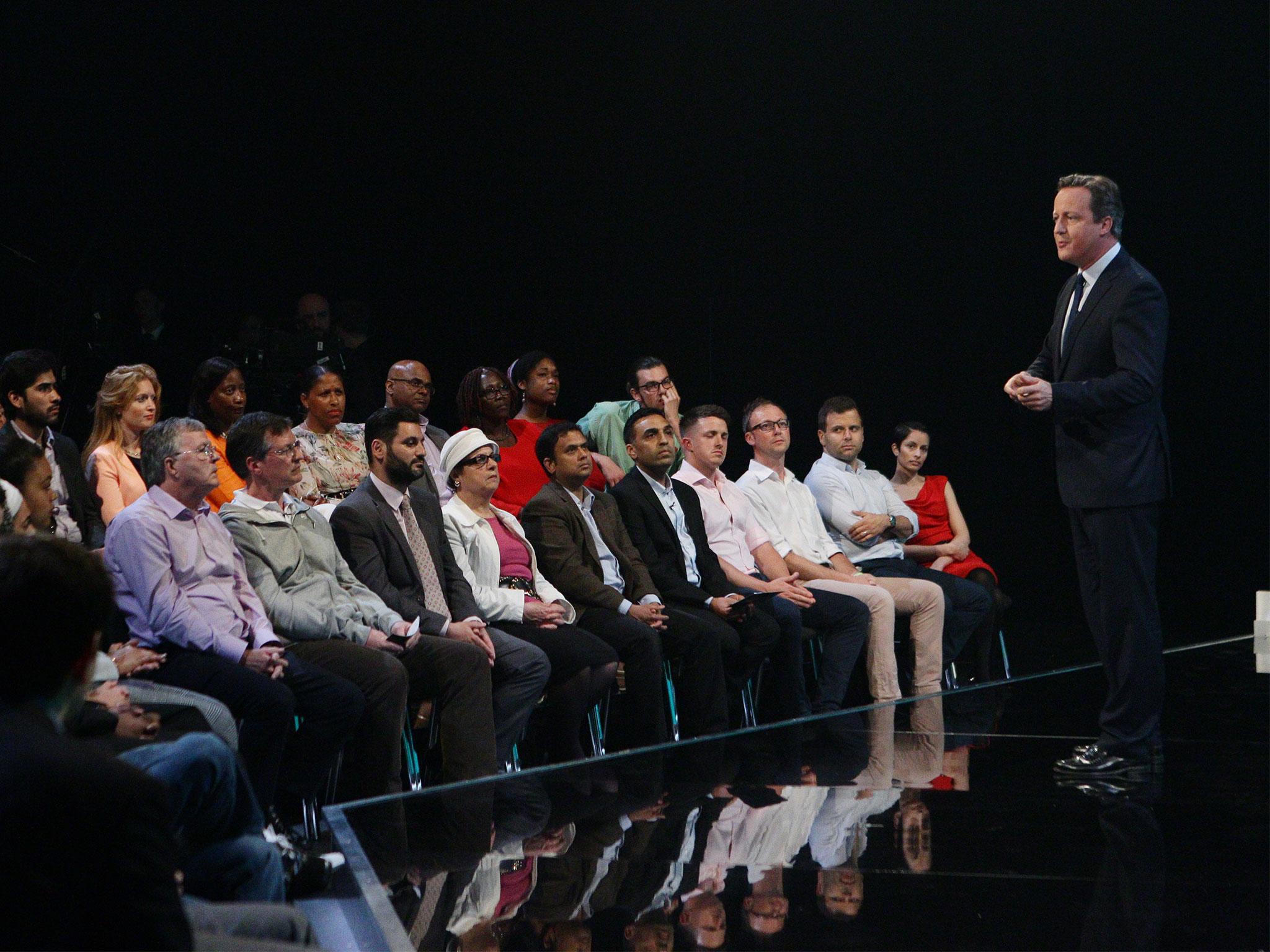The Independent's journalism is supported by our readers. When you purchase through links on our site, we may earn commission.
TV election debates are a constitutional abomination, but they engage millions more people in our democracy
Tony Blair dodged TV debates in his time and got away with it, but Theresa May lost respect when she ran away from them last year – so they might happen next time and it is worth discussing how best to do them


Your support helps us to tell the story
From reproductive rights to climate change to Big Tech, The Independent is on the ground when the story is developing. Whether it's investigating the financials of Elon Musk's pro-Trump PAC or producing our latest documentary, 'The A Word', which shines a light on the American women fighting for reproductive rights, we know how important it is to parse out the facts from the messaging.
At such a critical moment in US history, we need reporters on the ground. Your donation allows us to keep sending journalists to speak to both sides of the story.
The Independent is trusted by Americans across the entire political spectrum. And unlike many other quality news outlets, we choose not to lock Americans out of our reporting and analysis with paywalls. We believe quality journalism should be available to everyone, paid for by those who can afford it.
Your support makes all the difference.Sky News has relaunched its campaign to make sure there will be TV debates between the party leaders at the next election, although it is (probably) still three and a half years away.
Once again, I am torn. TV debates are a constitutional abomination. We elect MPs standing on party manifestos in our parliamentary democracy. We do not have a presidential system, and the obsession with the trivial processology of the debates – when they did happen in 2010 – sucked up almost all the energy of the campaign.
On the other hand, those debates, when they did happen, attracted huge audiences – millions more than the usual TV coverage of election campaigns. Even the amputated debate in the last election, from which Theresa May ran and to which she sent Amber Rudd instead, was watched by large numbers of people.
We like to sneer about the superficiality and razzmatazz of American politics, but the TV debates, which are an established feature of presidential elections there, also attract vast national audiences – for programmes which are usually 90 minutes long.
So on balance I think TV debates are a good thing. Engaging more people in democracy is more important than the strict constitutional niceties. That is why I thought it was right to have a referendum on our membership of the EU.
In any case, the joy of the British constitution is its ability to adapt to social change. The party system itself was grafted onto a system designed to elect representatives from localities across the kingdom, and prime ministerial power emerged gradually out of that.
Sky News is also right to start its campaign now. TV debates don’t usually happen in British elections because the negotiations between parties and broadcasters are so complex. Thus any leader with an interest in their not happening – usually the one who expects to win – can frustrate them.
That was why Tony Blair, expected to win in 1997, 2001 and 2005, got his representatives to throw up legalistic difficulties and objections. The only reason the debates happened in 2010 was that David Cameron had challenged Gordon Brown to hold them when Brown was ahead in the opinion polls – and was then too arrogant about his ability to speak off the cuff to pull out when he was expected to win. And Cameron’s performance in the debates confirmed the wisdom of Blair’s risk-minimisation: Cameron came a cropper, losing out to new boy Nick Clegg, while Brown came across better than expected.
Hence Cameron’s refusal to take part in debates with Ed Miliband in 2015, forcing the broadcasters to experiment with back-to-back interviews and seven-way debates among other party leaders. And hence Theresa May’s cowardice last year – but she seemed to be trying to stand against the tide and suffered badly for her refusal to take part. The public mood has changed, and now the frontrunner might have to calculate that they are more likely to lose than gain by not taking part.
That said, there are still complex problems to solve, the main one being who should take part. A problem in 2010 was that Nick Clegg gained undue prominence as leader of the half-party in a two and a half-party system, but that should be soluble by designing different lineups for some debates, or allocating unequal time.
But that is why it is right to start discussing the format of TV debates now.
Join our commenting forum
Join thought-provoking conversations, follow other Independent readers and see their replies
Comments